You have probably heard about electrolysis, a hair removal method that yields permanent results. If you have tattoos, you may be wondering if it's safe to get electrolysis and how it will affect your ink. We have looked into this issue and have found the best possible answers to your questions. Keep reading to see if electrolysis is the optimal hair removal choice for your body art.
Fortunately, electrolysis is deemed safe for tattoos and is considered a better option than laser hair removal. Since electrolysis uses small bursts of electricity to kill the hair follicle rather than heat like laser treatments, your tattoos will be unaffected.
Now that we know that electrolysis is the best hair removal option for tattoos let's look at how it differs from laser hair removal and answer some questions about the correlation between tattoos and hair growth.

This article may include affiliate links and elements that were carefully created by our team using advanced ai to help you envision the best style advice.
Electrolysis vs. Laser Hair Removal: Advantages and Disadvantages
Electrolysis
Electrolysis involves inserting a fine probe to disrupt hair growth. It works by sending tiny electrical currents to the base of the hair follicle. The electrical currents damage the hair follicles, making it impossible for hair to grow back. After the probe is inserted into the follicles, tweezers pluck the unwanted hair away.
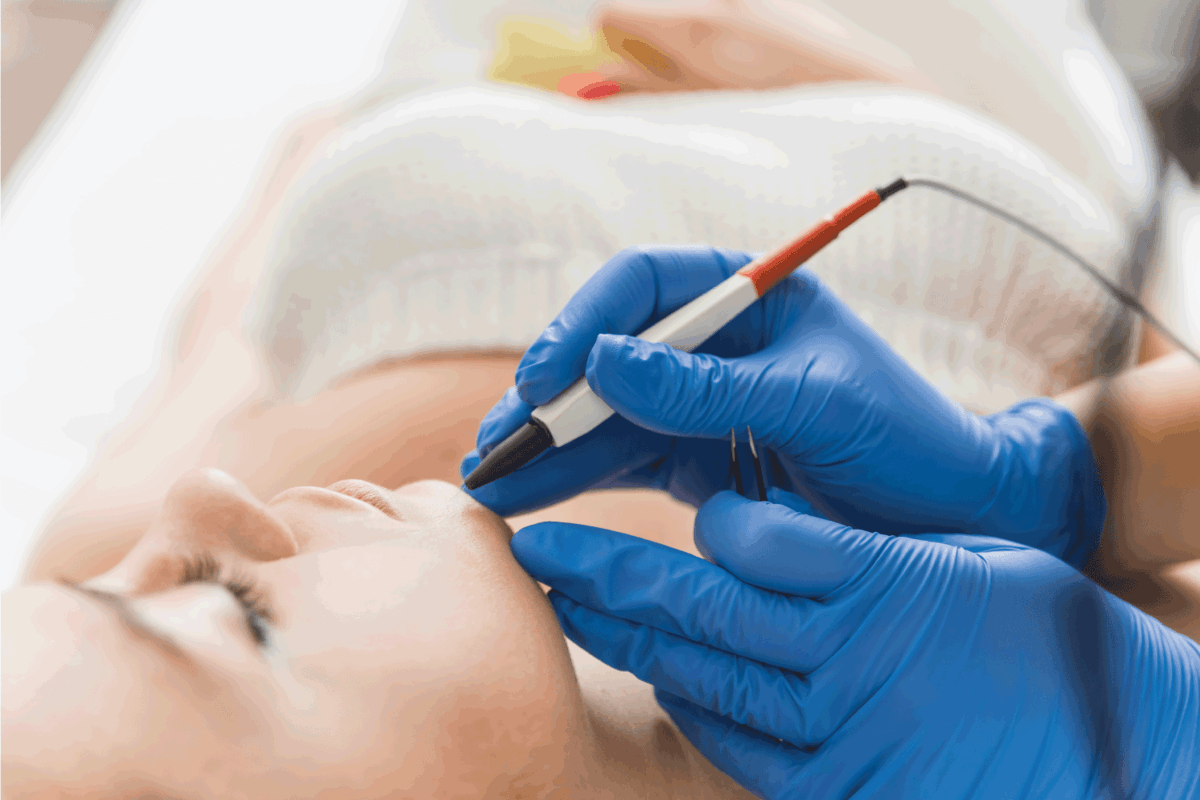
Advantages
- Electrical currents are safer for tattooed skin.
- It provides permanent results.
- The Food and Drug Administration (FDA) regulates electrolysis. This doesn't include devices sold for at-home use.
- Use it anywhere on the body, even to shape your eyebrows.
Disadvantages
- You will need multiple sessions as it doesn't cover large areas of the body at one time.
- Insurance doesn't cover the cost, and each treatment can range from $30-$200, depending on the treatment area.
- Redness and skin irritation are common after treatment.
Laser Hair Removal
Laser hairgrowth
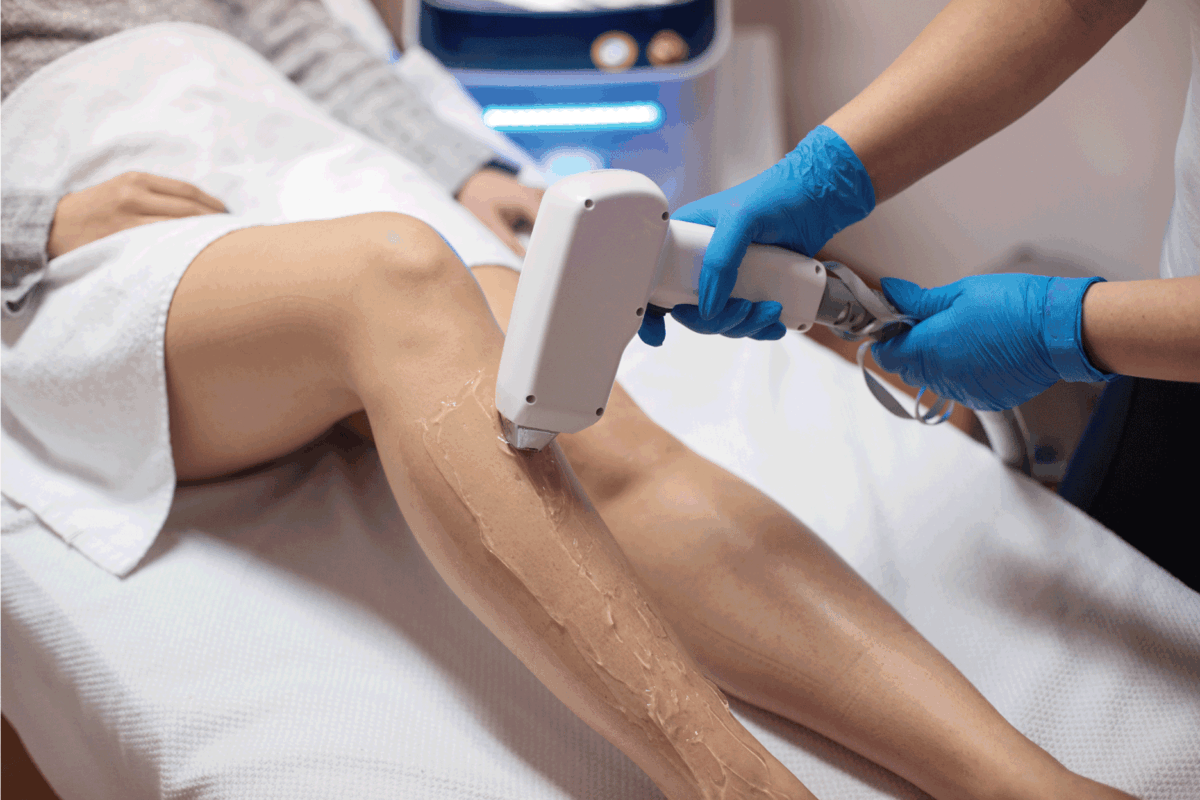
Advantages
- Use it anywhere on the body, except for the eye area.
- It can cover large areas of the body in one session.
- There is little to no recovery time after each treatment.
Disadvantages
- Lasers can distort your tattoos; this is especially true for black and grey ink tattoos. Since the heat seeks the hair follicle's pigment, it can also attract the pigment from your tattoo, causing it to scatter and distort.
- Side effects may include burning, blistering, swelling, and changes in skin pigmentation.
- It will not stop hair growth, only slow it. Multiple sessions are needed to maintain your look.
- You will need to avoid direct sunlight after treatment to minimize the risk of sunburn.
Does Hair Grow Over Tattoos?
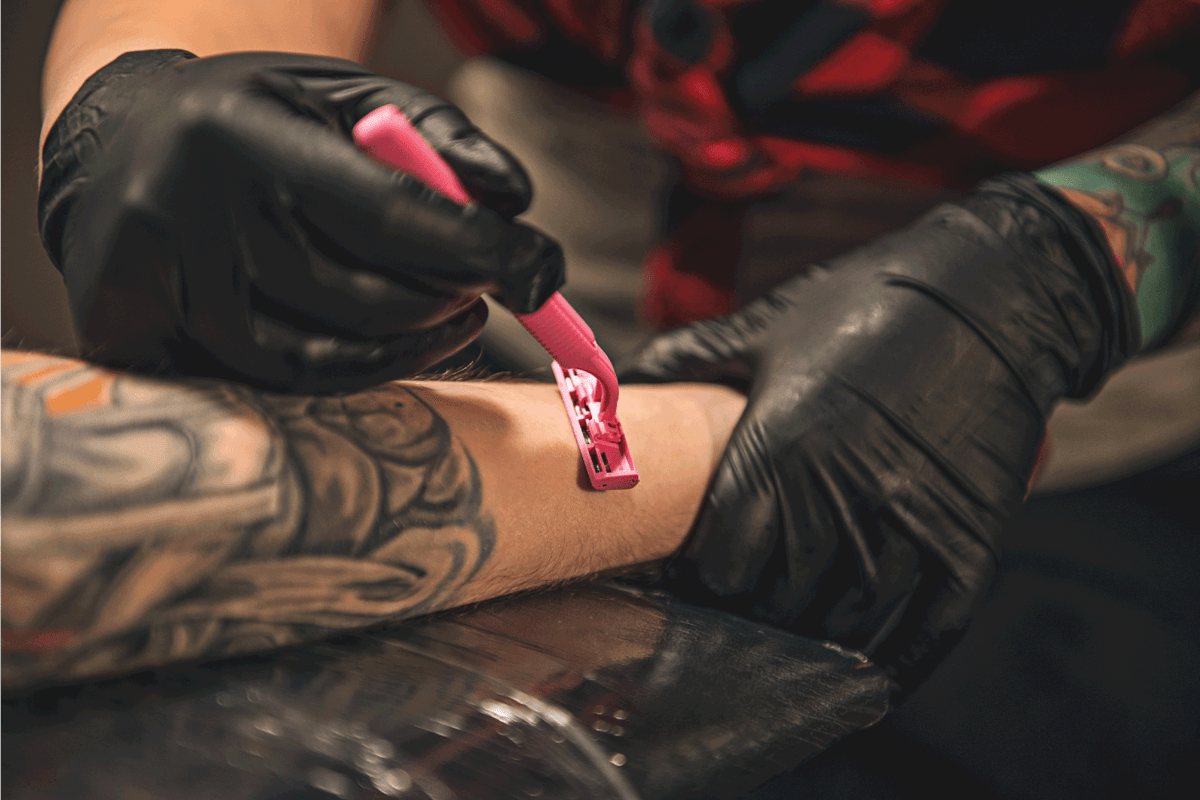
Before getting inked, the tattoo artist will prepare the skin by shaving the area. Shaving ensures that the artist has a smooth canvas to work on that is free of hair. However, getting a tattoo will not inhibit hair growth. After shaving, your hair will continue to grow at its average rate.
If you're bothered by constantly having to shave over your tattoo, electrolysis is the best option for achieving permanently smooth skin.
Do Tattoos Kill Hair Follicles?
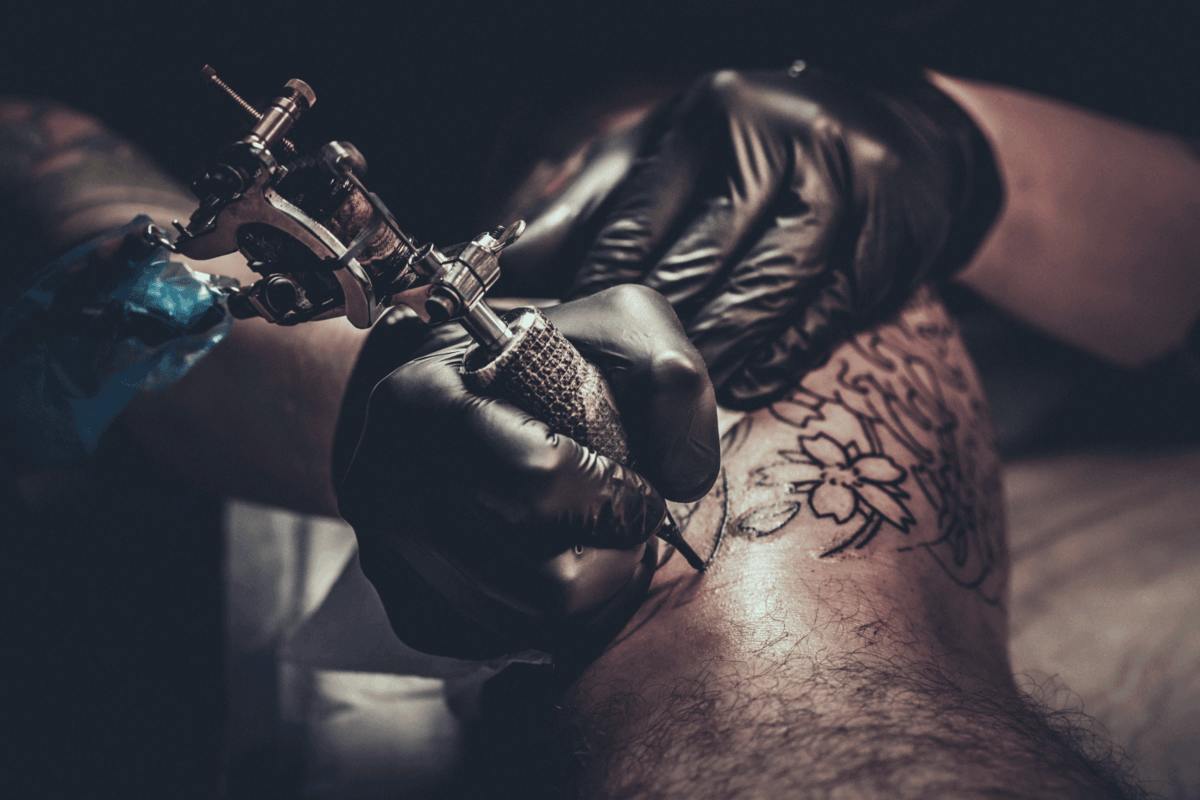
In short, no. Tattoo ink gets injected into the dermis and does not affect hair follicles. During the healing process, hair growth may be delayed for a short time but will continue to grow again once the skin has recovered.
One concern you may have after getting a tattoo is ingrown hairs. Ingrown hairs are hairs that grow back into the skin instead of popping out. Ingrown hairs are bothersome and cause painful bumps usually filled with pus. If an ingrown hair happens after getting tattooed, it is crucial not to pick at it, as this may cause damage to the ink as well as scarring and infection.
To prevent ingrown hairs, make sure your tattoo artist shaves the area in the same direction as the hair grows and also request that they use shaving gel instead of dry-shaving; dry-shaving is notorious for creating ingrown hairs. Also, a proper cleansing routine for your new tattoo will ensure that it stays moisturized and stays free of infection.
A proper tattoo aftercare kit is a must for healthy skin. Click here to see this three piece set on Amazon.
What Happens If You Use IPL Over A Tattoo?
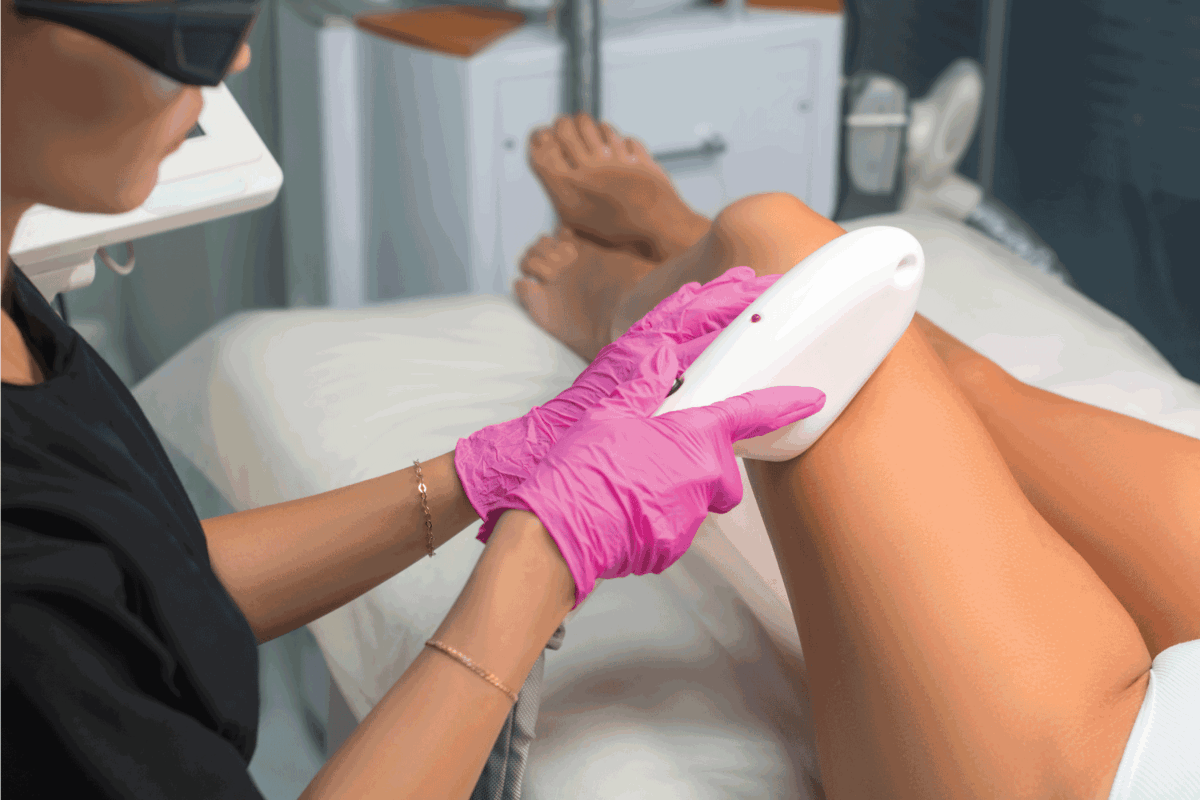
Intense Pulsed Light (IPL) differs from laser hair removal. It uses multiple spectrum lights, whereas lasers use a single light; this means that IPL is more scattered while lasers can target a specific area. Both methods use heat to damage hair follicles, but is IPL safer to use over a tattoo than lasers?
Unfortunately, the answer is no. Using IPL over a tattoo will ultimately damage your ink and will leave you with a nasty scar as well as painful burns and blistering. Burns associated with using an IPL device take weeks to heal, and your tattoo will be in ruins.
It's important to note that many clinics claim an IPL device can safely remove unwanted tattoos; this is certainly not true as they are two totally different mechanisms.
Can You Use Nair On A Tattooed Area?
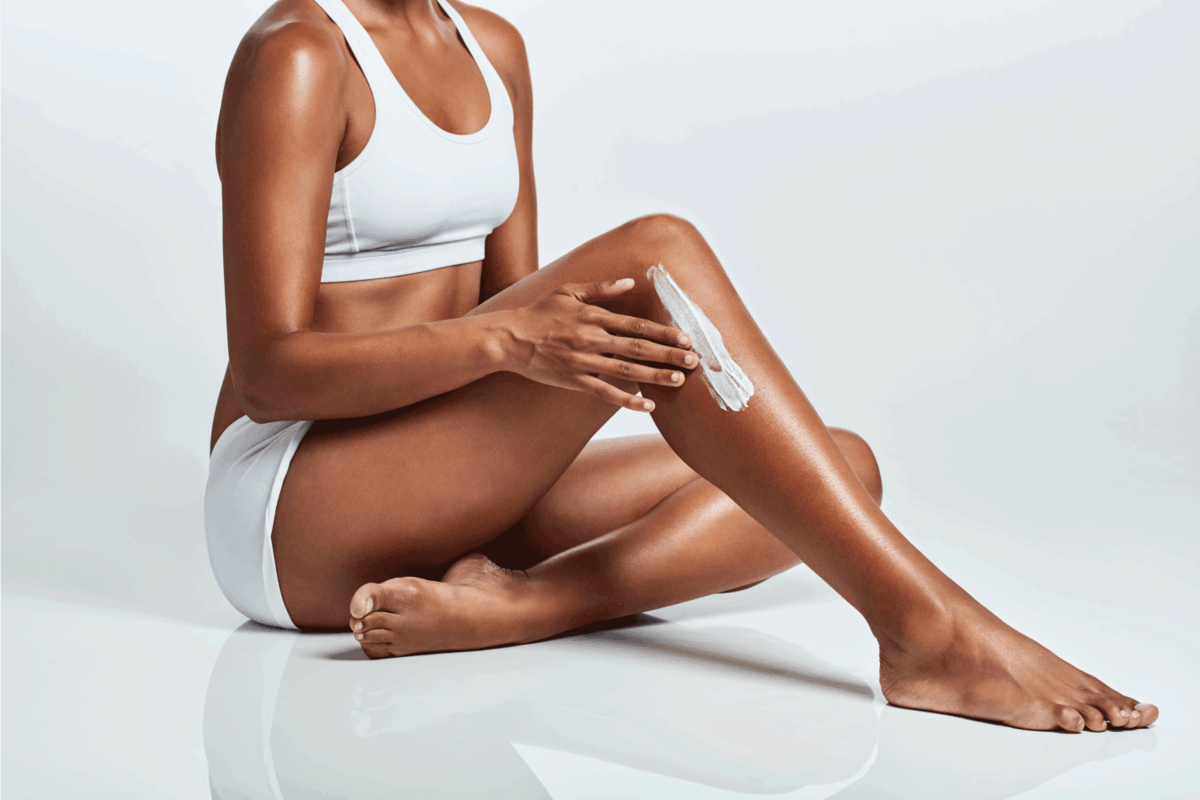
Nairdepilatory cream

Nair the hair away safely on your ink. Click here to see this Nair with baby oil on Amazon.
The Takeaway
Compared to laser hair removal, electrolysis is undoubtedly the best method for tattooed skin. It has minimal side effects, gives permanent results, and will leave your tattoos unaffected. Although it may take numerous sessions to achieve your desired look, electrolysis is a wise investment that will save you time and money in the long run. If you're tired of shaving, waxing, and tweezing unwanted hair and want to preserve your ink, electrolysis hair removal is the way to go.
For more style and beauty know-how, be sure to check out:
Can You Pull Off Pink Hair? [Here’s how!]
Does Dry Shampoo Fix Greasy Hair?





































